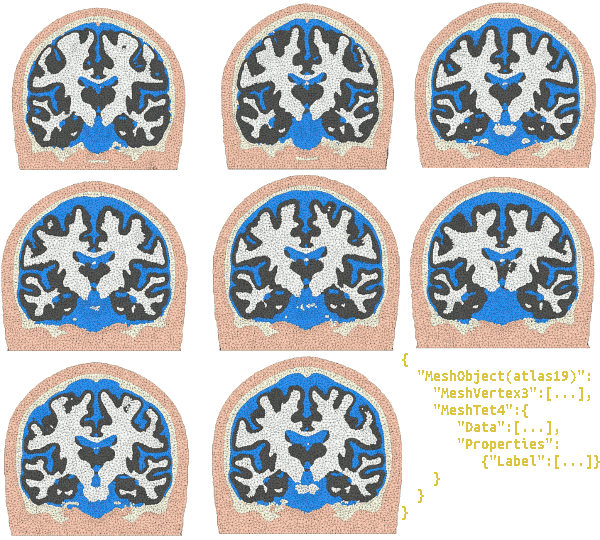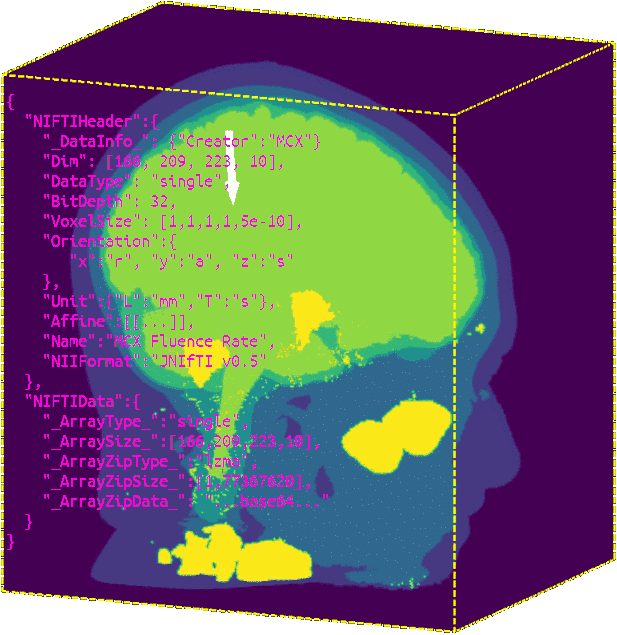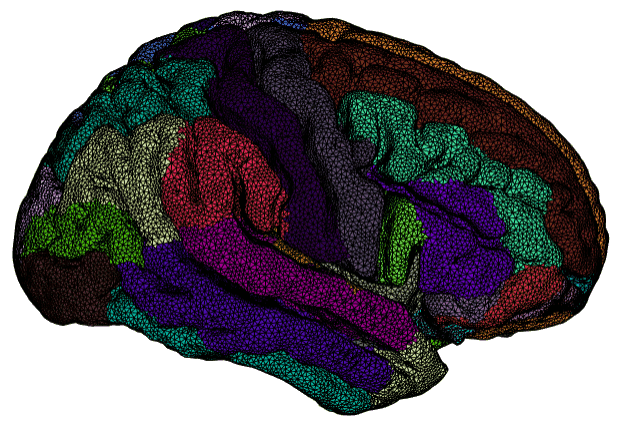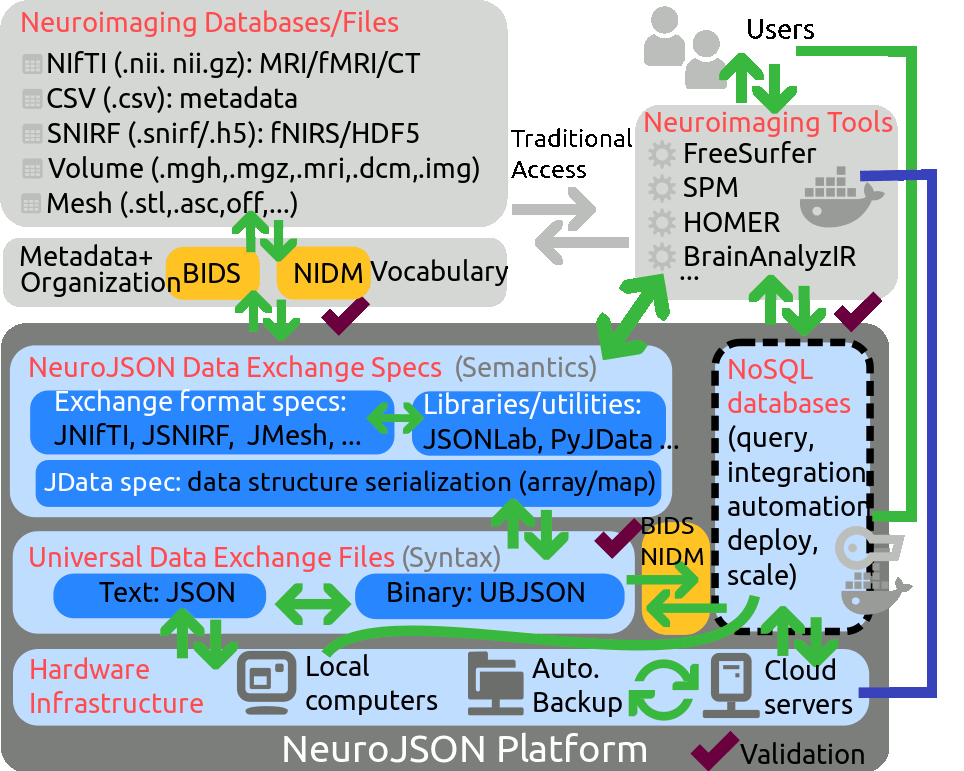Python
python-jdata
python-bjdata
MATLAB/GNU Octave
JSONLab
JNIfTY
JSNIRFY
JavaScript
JSData
/Demo/: MCX Cloud
/Demo/: BlenderPhotonics
C/C++
ubj
Software
- List of NeuroJSON parsers/writers
Click on each library/utility on the left to read more.
-
python-jdata
Using the lightweight Python-JData module, a complex Python data structure can be encoded as a dict object that is easily serialized as a JSON/binary JSON file and share such data between programs of different languages.
- URL
- https://pypi.org/project/jdata/
- Code
- https://github.com/NeuroJSON/pyjdata
- Install
-
For Debian Bullseye/Ubuntu 21.04 or newer
sudo apt-get install python3-jdata
For all other systems
pip install jdata
- Example
-
import jdata as jd
import numpy as np
a={'name':'jd','value':1,'array':np.arange(1,5,dtype=np.uint8)}
jd.show(a)
jd.save(a,'mydata.json') # jdata can dump numpy arrays to JSON
b=jd.load('mydata.json') # jdata loads both JSON and UBJSON
jd.save(b,'mydata.jdb') # save to UBJSON/Binary JData file
print(b)
-
python-bjdata - a lightweight binary JSON format for Python
This package was modified based on the py-ubjson package developed by Iotic Labs Ltd. The major changes were focused on supporting the Binary JData Specification Draft 1 - an extended Universal Binary JSON (UBJSON) Specification Draft-12.
- URL
- https://pypi.org/project/bjdata/
- Code
- https://github.com/NeuroJSON/pybj
- Install
-
For Debian Bullseye/Ubuntu 21.04 or newer
sudo apt-get install python3-bjdata
For all other systems
pip install bjdata
- Example
-
import bjdata as bj
a={'name':'jdata','value':1.0,'array':[1,2,4]}
bj.dumpb(a)
with open('data.jdb', 'w') as f:
bj.dump(data, f)
# alternatively, call jd.load/save
import jdata as jd
b=jd.load('data.jdb')
jd.save(b,'newdata.jdb')
-
JSONLab - a portable JSON/UBJSON/MsgPack reader/parser for MATLAB/Octave
JSONLab is one of the most popular JSON parsers for MATLAB, winning Popular Files 2018 and Editor's Pick.
- URL
- http://iso2mesh.sf.net/cgi-bin/index.cgi?jsonlab
- Code
- https://github.com/fangq/jsonlab
- Install
-
For Debian Bullseye/Ubuntu 21.04 or newer
sudo apt-get install octave-jsonlab
For Fedora 24 or new
sudo apt-get install octave-jsonlab
For all other systems
- https://github.com/fangq/jsonlab/releases
- Example
-
a=struct('name','jdata','value',1.0,'array',[1,2,4]);
savejson(a)
savejson('rootname',a)
savejson('rootname',a,'compact',1)
savejson('',a,'mydata.json')
savejson('ziparray',eye(10),'Compression',...
'zlib','CompressArraySize',1)
savejson('',eye(10),'UseArrayShape',1)
dat=loadjson('{"obj":{"string":"value","array":[1,2,3]}}')
dat=loadjson('mydata.json')
savebj('rootname',a,'mydata.jdb') # save to UBJSON
-
JSData - JData encoder/decoder for JavaScript
JSData is an ultra-portable JavaScript module that can encode and decode NeuroJSON/JData data structure constructs in Node.js apps or web pages. It uses numjs as the backend when decoding N-D array JData constructs.
The NIH-funded MCX Cloud web-based Monte Carlo simulation utilizes JSData for decoding 3-D volumes written in the [*URL: https://github.com/NeuroJSON/jnifti JNIfTI format] by MCX and perform in-browser 3-D rendering using Three.js
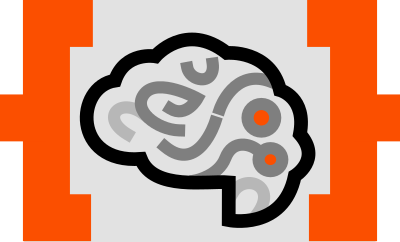 NeuroJSON
NeuroJSON![[Home]](upload/neurojson_banner_plain.png)
